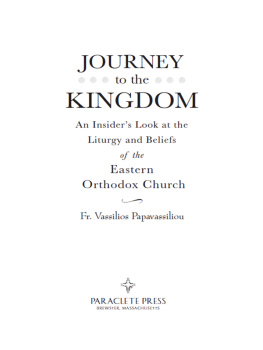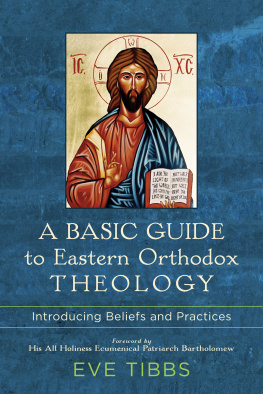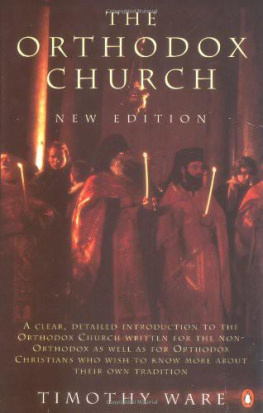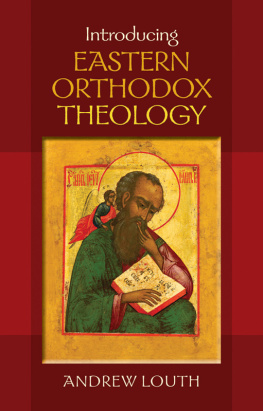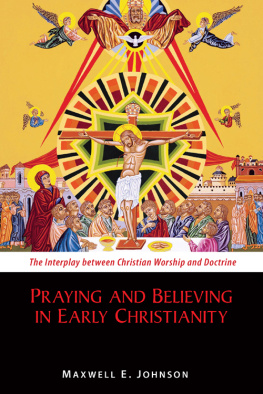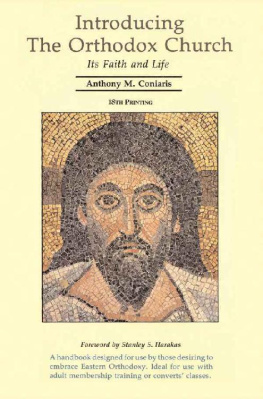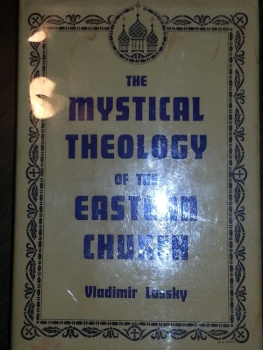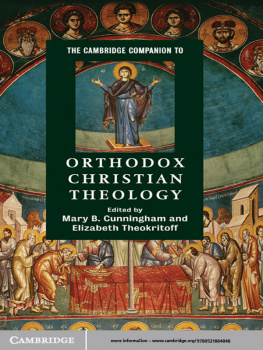1

Thinking and doing, being and praying: where do we start?
Well, where do we start? In Alice in Wonderland , the White Rabbit is advised by the King of Hearts: Begin at the beginning... and go on till you come to the end: then stop. That sounds like good advice, but how are we to apply it? Many accounts of the Christian faith adopt the order of the creed, beginning with God the Father and continuing through the Son, and then the Spirit, to the Church and eternal life. That makes some sort of sense, but it seems to me to beg a question, one that we need to face up to. For if there is one thing we know about God the Father, it is that he is unknowable. No one has ever seen God (John 1.18). You cannot see my face, God says to Moses, for man shall not see me and live (Exod. 33.22): this warning is repeated throughout the Old Testament, though usually in contexts where God actually is seen or apprehended in some way (as with Moses). How can we start with God the Father, if we cannot know him?
This is a question we can pursue in various ways. Perhaps this means that we start with God, not as knowing him, but as standing before a mystery that is, and will remain, beyond our understand ing. In the Liturgy of St John Chrysostom, at the beginning of the anaphora, we justify our attempts to worship God by saying: for you are God, ineffable, incomprehensible, invisible, inconceivable, ever existing, eternally the same. Our worship is a response to an unfathomable mystery. In a sense, if we start there we shall never proceed: for once we glimpse the unfathomable mystery of God, we shall never drag ourselves away. Or maybe we shall proceed, but constantly find ourselves drawn back to the inexhaustibility of this mystery that God is.
But if we do proceed, there is another problem. If we posit God and then consider him as Creator, source of all values, especially moral, and continue, as we consider the creed, to think of the Incarnation of God the Son, all that led up to that, all that has followed from it, the paschal mystery of the death and resurrection of Christ, the outpouring of the Spirit, the birth of the Church, then what is it that we are doing? It looks like an objective list of persons and events that we simply relate.
But how can that be, how do we know that it is like that? The creed, we need to remind ourselves, is not a list of things to believe, it is itself a liturgical text, belonging, first of all, to the baptismal liturgy. It summarizes the faith that the newly baptized Christian is embracing; it is the culmination of a process of learning about the faith, and beginning to practise what it requires, in a doubtless stumbling way; it opens up to the new life of the baptized, a life that draws its sustenance from the Eucharist, which in Orthodox practice is immediately celebrated after the baptismal liturgy, or rather as the final part of the rite of initiation. Both the paths we have just sketched converge: if to acknowledge God is to acknowledge his unknowability and stand before him in awe; if the creed is part of our initiation into a life, not a summary of things to be believed, then in both cases we do not stand over against God; rather, we are finding ourselves caught up in the divine presence and the divine activity, and trying to make sense of it. It is something of what is involved in that, how that presence and that activity are felt by us, that I want to explore in this chapter.
When I gave the course of lectures from which this book is derived, I called it a personal introduction. There were two reasons for that. First, I claim no authority for what I am saying. I am keen to stand in the tradition of the Church, and hope that I do. But I am not a bishop, I do Second, my presentation is personal; it is how I see it. Furthermore, what I see is personal: it is the result of a personal engagement (doubtless flawed), and demands personal engagement. I am not presenting something to you that is independent of either what I see or what you see; I am suggesting that you look with me at something and I hope that you will see something of what it is that engages me.
If that is so, then various conclusions follow. To change the metaphor, I am inviting you on a journey. I can point out various things that we encounter on the way, perhaps even warn you against some paths that I fear will simply mislead you; but the journey is yours it will involve your commitment, your struggle. This is why I called this first chapter Thinking and doing, being and praying. An introduction to Eastern Orthodox theology, as I understand it, may well involve learning various facts and dates, terminology and concepts, but at its heart it is an introduction to a way of life.
I am a priest, and I am used to preaching, but I hope that you will not find this book too much like a sequence of homilies. How ever, there is no complete break between what I do as I try to lead my congregation deeper into their discipleship of Christ and what I am doing in this book, as I try to sketch out what Eastern Orthodox theology involves. There will be a difference of emphasis, a difference of balance, but not a complete difference, because I do not think one can present theology in the Orthodox tradition without making clear that at its heart there is an engagement, ultimately an engagement with God. Thinking and doing, being and praying: these are fundamental human activities. It is the case, I would suggest, that we do not exactly learn to do these things we engage in these simply by being human what happens is that we learn what is involved in doing these things.
For this reason, several movements in twentieth-century philosophy are at some level deeply sym pathetic to what I am suggesting here. Both the hermeneutical tradition associated with Heidegger and the rather different tradition associated with Wittgenstein have in common a conviction that we do not start out ignorant, and then by means of philosophy come to a knowledge of the world. Rather, we already know the world in some sense, simply by living in it, and what philosophy does is help us to reflect on what is involved in that knowledge of the world. So it is with theology: thinking and doing, being and praying, are activities we all engage in at some level or another. The questions about how we are to live, what it means to be, how we engage with the world, how we engage with what seems to transcend the world: we can hardly live without asking these questions. So we are already theologians. Orthodox theology takes us along a path, marked out by tradition, that helps us in our continuing grappling with these questions.
Standing before the mystery of God
I began by asking: where do we start? and reflected on the paradox that we seem to start from a place of unknowing, not in the sense of ignorance as if we started off with little knowledge and found that it increased but in a more fundamental sense starting off with an awareness that the One we seek to know is beyond any capacity we might have for knowing.
I suggested that we find ourselves standing before the mystery of a God who is beyond knowledge. And it is from this point that I want to indicate our next steps. We stand before God. We are always standing before God, for there is no place where God is not, as opposed to a place where he is: wherever we are we are before God. But there are places where, from a human perspective, the presence of God is more apparent to us, places where it is less easy for us to forget that God is here.
These places are many and various, and our sensitivity to them is in part a matter of our own upbringing and history. There is, for example, a very strong tradition in many geographical and historical cultures that mountains are places where God is encountered. The reason is partly because mountains are not easily amenable to human modification. Other places are more easily covered over with what humans have done to make themselves at home in them, but mountains and rivers, and the sea are resistant to human fashioning. One is already detached from what humans make of things; one is already open to the power that lies behind everything. We have a sense of the transcendent, as we put it, a sense of the divine. The poet, T. S. Eliot, put it well when he said of Little Gidding (the holiness of which has to do with historical events) that it is a place [w]here prayer has been valid.


